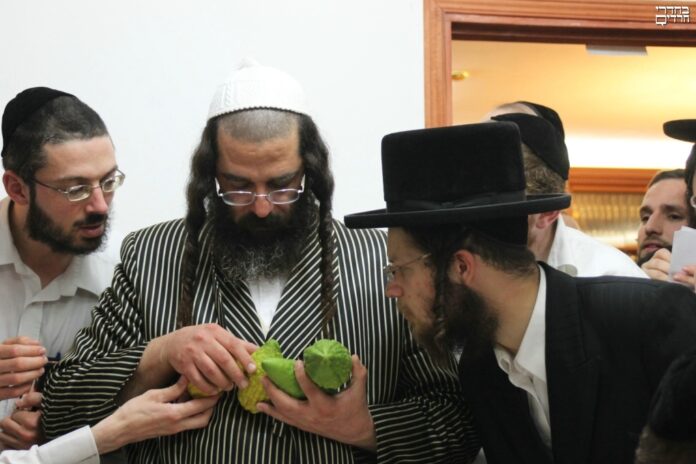A few weeks ago, I was privileged to host Rav Moshe Brandsdorfer during his recent visit to New York. One of the most revered contemporary poskim, whose Heichal Horaah in Yerushalayim has become the go-to address for guidance for people from all walks of life, Rav Brandsdorfer offers a perspective on halachah as it relates to current events that is not only scholarly and informed but also fascinating.
Although our conversation was meant to be a private one, with his kind permission I am publicizing it l’hagdil Torah ul’haadirah.
Every tragedy in Jewish history has given rise to its own unique shailos. I’m sure that the current situation has led to its own shailos as well.
The first shailah that I received after the situation began in the south of Eretz Yisrael was two hours after the sirens went off on Simchas Torah morning. The head of ZAKA in Yerushalayim, Reb Bentzion Oiring, came to tell me that the police had informed him that war had broken out, and they wanted him to go help. He wanted to know if he was permitted to do so. My first reaction was to say no, as it’s forbidden to do a melachah on Shabbos for a niftar. But then I said that I wanted to think about it a bit more, and after a few minutes I decided that he could go.
“Why are they calling you now?” I asked aloud. “They don’t really know what’s happening, and they wouldn’t summon you to a war zone to simply recover bodies. They’re probably worried that the terrorists will hold the bodies hostage. If you don’t go, they’re going to have to devote more manpower to watch over the niftarim, which will create a more dangerous situation. So even if what I’m saying is only a safek, the halachah is that we are mechallel Shabbos even for a safek pikuach nefesh.”
After he left, the people in the beis midrash wanted to know why he had come; they saw the ZAKA vest, but they didn’t know what was happening. I repeated his question and explained why I had permitted him to go. I also said that if there’s a svara that leads to a psak, it’s likely that the svara is valid. But there were people in the beis midrash who were dismissive of my svara.
The next day, Oiring called to say that he had sent his team, but that he himself hadn’t left until eight hours later. When he arrived at the staging area between Beersheva and Netivot, he found himself having to drive between the bodies of niftarim and people who were injured, and there were teams still trying to figure out who belonged in each category. I was later told that during the fighting, many of the locals had loaded bodies into vehicles so that the terrorists wouldn’t be able to take them hostage, which was exactly what I had anticipated. When we have a klal that we must desecrate Shabbos, it applies to even a distant safek.
I would imagine that the identification of bodies also involved many shailos.
That first week, a lot of heimishe yungeleit were sent out to help identify the bodies. When Shabbos came, there was a shailah whether or not they could continue their work on Shabbos. I said it was clear to me that it’s permitted, because identifying the bodies isn’t for the niftarim; it’s for those who are living.
We are currently in a matzav where there are victims, hostages and missing people. Being able to identify someone even a tiny bit earlier means that we get a clearer picture of how many people are in the hands of the terrorists and need to be saved. When people asked me what difference it would make, I explained that if there is even the slightest possibility that knowing sooner rather than later will be beneficial, you have to do it. There’s also such a thing as teiruf hadaas (mental derangement), and the halachah is that we’re allowed to be mechallel Shabbos even for that, because that’s also pikuach nefesh.
Some people disagreed, saying that it only applies to a d’rabbanan, which is true. In Hilchos Shabbos siman 306, the Mishnah Berurah cites this halachah with regard to a d’rabbanan. However, the Gemara says that being held captive is the worst thing in the world, and when a father doesn’t know what happened to his child and whether or not he’s a captive, he can’t handle it. In fact, if the father is told that his missing child has been killed, it makes him feel better. And although it seems from the Mishnah Berurah that this halachah only applies to a d’rabbanan, the Pri Megadim clearly says that it applies even d’Oraisa, and the Shevet Halevi writes that we cannot have a general rule because it can apply d’Oraisa depending on the specific case.
To read more, subscribe to Ami





















